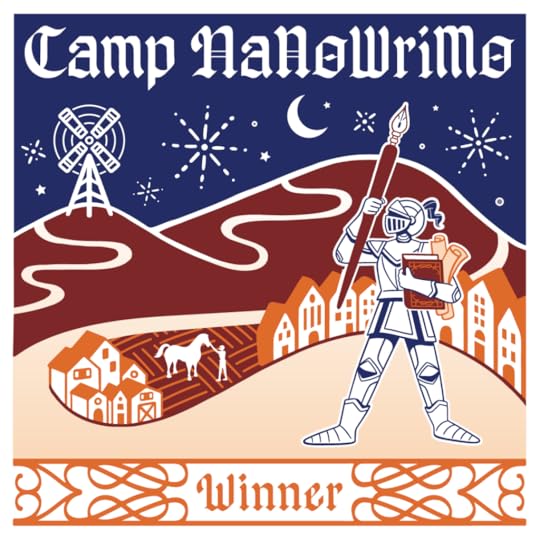Grace Tierney's Blog, page 18
July 4, 2022
Zarf – an Everyday Item whose Name You Didn’t Know
Hello,
You might be aware that a version of this blog is available on regional radio in Ireland once a month. The lovely Sinéad Brassil on LMFM Radio hosts me on Wordfoolery Wednesdays once a month to bring strange words and the stories behind them to the listeners. If you live outside of Ireland you can still listen online or catch the podcast later – some samples are available on my Listen page.
We’ve developed the habit of challenging listeners to guess the meaning of a Mystery Word as part of our session and in March 2022 the audience loved guessing about zarf so I thought I’d share it with you too. I gave three suggestions – an extreme sport, a cup-holder, and a beauty treatment but suggestions from callers included – a comic-book Batman exclamation, a TV alien, an extra toe, a child named by a celebrity, and the noise you make when you sneeze and fart at the same time. Yes, LMFM listeners are a witty bunch.
Sadly none of those meanings are correct but I love the inventiveness.
I found zarf in Susie Dent’s 2016 book “Dent’s Modern Tribes” which I read last year. I had been gathering words about specific occupations but it turns out she beat me to it. Zarf was my compensation for having to scrap that book idea. I love finding words like this where you instantly go “this is the word I didn’t even know I was seeking and yet will immediately add to my vocabulary”.
So what is a zarf? In modern life it’s the cardboard cup-holder wrapped around your takeaway coffee to prevent you burning your fingers. See what I mean? You never knew what that was called but you potentially use it often. Unfortunately as a non-coffee drinker I haven’t been able to get a zarf to use to illustrate today, please accept some other coffee paraphernalia as a substitute.
 Not a zarf, sadly, but coffee at least
Not a zarf, sadly, but coffee at leastZarf means envelope in Turkish and that’s where we get the word from – the zarf envelopes the cup. It’s a direct borrowing to English with a historic backstory.
In the 1500s, the Ottoman Empire banned alcohol and strong Turkish coffee became very popular, as did coffee houses. This worked well until the Sultan in the 17th century didn’t like the politics talked in the coffee houses and he outlawed them until the people revolted.
Under pressure, he re-opened them, but imposed a heavy coffee tax. Their drinks were served in glass or ceramic cups which were held in elaborate metal holders to prevent the drinkers from burning their hands. They were sometimes even encrusted with gems. These were called zarfs. You will sometimes still be served drinks such as mint tea in similar glass and metal vessels in Turkey, Morocco, and elsewhere.
Modern takeaway coffee zarfs are much simpler in design and were patented by an inventor called Jay Sorenson, in 1995. He may not have made them with silver and gems but apparently he makes eight million dollars a year from them. Nice work if you can get it.
Until next time, happy reading, writing, and wordfooling,
Grace (@Wordfoolery)
June 28, 2022
Washing and Friendly Fishes – the History of the Word Deluge
Hello,
It’s lashing rain on my windows as I write this so I found myself inspired to explore the word deluge. Grab your umbrella and a sturdy pair of waterproof boots, and join me.

Deluge’s meaning is usually, but not always, associated with water. A flood can deluge the land with water, rain can deluge my garden (as it is today), and we can be deluged with phone calls, emails, or work. The original meaning comes from water.
Deluge joined the English language in the late 1300s to describe a flood of water, specifically the great flood in the Book of Genesis in the Bible which Noah escaped by building his ark. The word arrived directly from Old French and originally from Latin diluvium (flood). Diluvium comes from diluere (to wash away) which was created from dis (away) and luere (a form of lavere – to wash). Hence, originally a deluge was all about washing, e.g. the flood waters washing away the plants and riverbanks as it surges down-river.
Famously King Louis XV of France said “après moi, le déluge” (after me, the deluge) to express his indifference to the results of his reckless extravagance. His reign (1715-1774) was the second-longest in French history but is seen as laying the groundwork for the French Revolution so he was pretty accurate with that arrogant announcement.
Deluge can also be used as a verb, since the late 1500s, meaning to pour over or overwhelm, perhaps through sheer strength of numbers.
My copy of “Brewer’s Dictionary of Phrase and Fable” which I’m reading slowly (1213 pages, small font!) and enjoying hugely, adds some extra information about deluges other than the biblical one.
In the Babylonian Gilgamesh Epic the ark rescue is broader – saving craftsmen and treasure as well as creatures. Indian legends tell that Manu (a Hindu creator figure) was warned by a fish of the approaching flood and the friendly fish towed his boat to safety. Similar tales of floods are also found in China, Burma, New Guinea, and the Americas. Floods have always been significant events in world history.
Until next time, happy reading, writing, and wordfooling,
Grace (@Wordfoolery)
June 20, 2022
The Greek Word History of Catastrophe
Hello,
It had to happen, but yes it’s a sad moment. I’ve reached the end of my donated words from the wonderful members of the Teen Book Club at Academy Books. The list included discombobulate, stupdendous, gazebo, instinct, cynical, expiate, and more. It brought me from two storey gazebos with underfloor cooling in Persia to Americans inventing words, with a side order of surly philosophers taunting Alexander the Great. You never know where words will take you – one of the joys of writing this blog.
Today the list takes a final bow with the history of the word catastrophe. For me this word is a synonym of disaster and that’s the first definition in the dictionary – an event causing great and sudden damage and suffering. However, the second meaning listed brings us closer to catastrophe’s roots – the denouement of a drama.
[image error]Pexels.com" data-medium-file="https://wordfoolery.files.wordpress.c..." data-large-file="https://wordfoolery.files.wordpress.c..." src="https://wordfoolery.files.wordpress.c..." alt="" class="wp-image-3486" width="368" height="276" srcset="https://wordfoolery.files.wordpress.c... 368w, https://wordfoolery.files.wordpress.c... 736w, https://wordfoolery.files.wordpress.c... 150w, https://wordfoolery.files.wordpress.c... 300w" sizes="(max-width: 368px) 100vw, 368px" />Photo by Monica Silvestre on Pexels.comCatastrophe joined the English language in the early 1500s when it was defined as a reversal of what is expected, especially the turning point in a drama or the winding up of the plot. It had traveled via the Latin word catastropha from its Greek source katastrophe (a sudden end). Katastrophe was formed from the verb katastrephein (to overturn, to trample on, to come to an end) which is compounded from kata (down – think about catacombs, for example) and strephein (turn).
I’m no expert on classical Greek theatre, although now I’m thinking I should try it sometime as any story with a massive reversal of fortune and sudden endings as the climactic point sounds very exciting. Perhaps a people living in a land filled with wars between nation states plus sudden earthquakes and eruptions, expected the unexpected to appear in their dramas. They were accepting of interventions by gods and goddesses in their legends too so presumably the catastrophe could also be orchestrated by Zeus or Hades too.
The idea of a catastrophe in English being a dramatic change of fortune moved from the realm of theatre into real life by the early 1700s when catastrophe gained the meaning we know best today – a sudden disaster.
Wishing you a week free of catastrophe, except onstage.
Until next time, happy reading, writing, and wordfooling,
Grace (@Wordfoolery)
June 13, 2022
Discombobulate – History Part Two
Hello,
This week’s word is discombobulate, with thanks to the Academy Books Teen Book Club who suggested it. It’s actually a word I tackled back in October 2011, but I know more about it now, so I felt it merited a brand new entry.
 Bobbing along, but not discombobulated
Bobbing along, but not discombobulatedDiscombobulate (pronunciation here) means to confuse or bewilder someone. There’s also the totally unrelated, but fun, word discobolus (a discus-thrower).
Discombobulate entered American English around 1830, originally spelled as discombobricate, meaning to upset or embarrass somebody. It was a created word using mock-Latin suffixes and prefixes. Other examples include – confusticate and absquatulate. As Jess Zafarris of Useless Etymology fame says – ‘“Discombobulate” was one in a series of words invented in the early to mid-1800s as part of a fad popular among educated high-society types who made up faux words by compiling Latin prefixes, suffixes, roots and other non-Latin components into silly-sounding combinations.’
Discombobulate probably drew on discomfort and discompose as a basis for its creation. Before you ask – there isn’t a linguistic opposite of discombobulate and combobulate is not a real word.
Until next time happy reading, writing, and wordfooling,
Grace
June 6, 2022
Another Roman Word – Stupendous
Hello,
This week’s word is stupendous (with thanks to the Academy Books Teen Book Club). I assumed I’d already covered this delicious word, but I’ve checked the archives and nope.
Stupendous is another word the Romans gave us and one which the erratic spelling of Tudor times changed. Stupendous arrived in the English language initially as stupendious (causing astonishment) in the mid 1500s but it was the mid 1600s before it lost that i and assumed its current spelling.
 A Roman reaction to a stupendous sight
A Roman reaction to a stupendous sightThe word came from Late Latin stupendus (to be wondered at) from the verb stupere (be stunned, struck senseless, aghast, astounded, or amazed). Aghast is another great one, must add that to my word list. The basic idea is that you were rendered stupid with the sheer shock of what you had seen or encountered.
The same Latin verb gave rise to the word stupid and it came from a root word, stupe, relating to hitting. There is a rather unkind expression about somebody being hit with the stupid stick, which perhaps is closer to linguistic roots than you might think. The core concept appears to be that if you’re acting stupidly or have found something stupendous then you behave as if you’ve just received a blow to the head.
There are also two derived words – stupendously and stupendousness but neither are much used now.
Until next time, happy reading, writing, and wordfooling,
Grace (@Wordfoolery)
May 30, 2022
The Funny History of Gazebo
Hello,
This week it’s another word suggested by the Teen Book Club members at Academy Books and it’s one with a long and convoluted history – gazebo. Clarity when it comes to gazebos is tough to come by so I’ll take this one step by step.
Step One – how do you say gazebo?
I say gah-zee-bow (bow like bow and arrow) but apparently it’s guh-ZEE-bow. There’s an audio file here, if you’re confused. There’s a slight difference on US vs UK English pronunciation, just to add a little spice to proceedings.
Step Two – what is a gazebo exactly?
The Cambridge dictionary says it’s (1) a small decorated building with roof and open sides usually in a garden, (2) a tent with open sides used for outdoor events, (3) a small shelter without walls in an open space where people can rest and relax.
 Italian style gazebo at the wonderful gardens on Garnish Island, Co. Cork
Italian style gazebo at the wonderful gardens on Garnish Island, Co. CorkStep Three – what’s the history of the gazebo?
Gazebos have been around much longer than their name. Similar structures pop up throughout ancient history. I’m going to summarise here but if you’d like a longer discussion check out this link.
As early as 2,600 BC the Egyptians had gazebos in their gardens, often placed beside fish ponds, and possibly to serve as temples. These are shown in tomb paintings from that period. The Greeks used their public gazebos to shelter from the sun while discussing politics and the issues of the day and they sometimes contained statues of the gods. The Romans reserved theirs for the gardens of the wealthy.
The Persians, famous for their hanging gardens to Babylon, brought gazebos to the next level. Despite gardening in the desert of what is now Iran, their engineers brought melted snow water from the mountains to provide irrigation. Their two-storey gazebos included marble floors cooled by underground water.
The French brought the gazebo to Europe and in Tudor times your garden gazebo would mimic the style of your grand house in England. Parallel to all these were the oriental versions of such structures. China began with garden temples and pagodas around the 4th century and this spread to Japan where sometimes the structures were used for their tea ceremony.
Step Four – Where does the word come from?
The word entered English in the mid 1700s and was popularised thanks to the book “New Design for Chinese Temples” by William Halfpenny (still available on Amazon if you’re curious). There are two theories on the source of the word itself. The first, and least accepted, is that it comes from the French phrase “que c’est beau” (how beautiful). If you say this with a French accent and speak quickly it can be misheard as gazebo. Many words form in this fashion, Santa Claus is an example.
The more likely story is that gazebo is a Latin joke. Such language jokes were surprisingly common during that time period and a few of them have appeared on this blog in previous posts. With Latin widely taught at English fee-paying schools it was popular to create words using it. The idea on this one is that it was compounded from the English word gaze (to view) with the Latin suffix ebo (I shall).
Until next time, happy reading, writing, and wordfooling,
Grace (@Wordfoolery)
p.s. Garnish Island, whose gazebo is pictured above, is well worth a visit, by the way. It’s on the Wild Atlantic Way in Cork and you take a short boat-ride out to view the island which is entirely covered in amazing gardens. You can read more about it here.
May 23, 2022
Instinct and Sticks, a Surprising Language Connection
Hello,
This week’s word is instinct, with thanks to the Teen Book Club at Academy Books. Only four more words to explore from their list and I’ll be back to my own inspirations. Don’t forget you can suggest a word for future Wordfoolery posts here. After 13 years of coming up with ideas for a weekly blog, suggestions are always welcome!
 The forest is full of sticks and instincts
The forest is full of sticks and instinctsInstinct arrived in the English language in the early 1400s with a different meaning. I always find it surprising when words start out like this, and yet it is a frequent event. Instinct originally meant a prompting and it came from either the same word in Old French or possibly directly from Latin instinctus (impulse, inspiration).
The Latin word came from the verb instinguere (to incite or impel) which was formed by compounding in (into, in, upon) and stinguere (prick or goad). Stinguere itself came from an old root word steig (to prick, pierce, or stick).
Thus the idea of inciting somebody came from the idea of poking a creature with a stick to get it to move, perhaps in moving domesticated animals such as cattle or horses from one location to another. This transferred to prompting a person to take action, hopefully without the application of a stick or goad.
Instinct being a prompting gradually transformed during the next two hundred years of English usage into the meaning we have today. By the mid 1400s it was describing the “animal faculty of intuitive perception”, or in simpler terms, a gut instinct, a hunch, an idea you can’t explain but believe to be true.
By the mid 1500s, instinct had acquired the idea of being a natural tendency to behave in a particular way. Now we have two meanings for instinct. The formal scientific meaning of a “reaction to a stimulus without involving reason” and the less formal natural impulse or ability.
I suspect in this case the stimulus could still possibly be a stick, although I don’t recommend poking anybody or anything with a stick. It’s not fair and you never know what their instinctive reaction might be.
Until next time, happy reading, writing, and wordfooling,
Grace (@Wordfoolery)
May 16, 2022
The History of Cynical, and Greek Dogs
Hello,
This week’s word is cynical, again thanks to the Teen Book Club at Academy Books, Drogheda. A cynical person is defined as “believing that people are motivated purely by self-interest. Distrustful of human sincerity or integrity”. I don’t fall into that camp, although I have my moments.
I already knew there was a Greece school of philosophy called the cynics, but exploring this word filled in a few gaps for me, and hopefully for you too.
The word cynical joined English in the late 1500s (with a capital C) to describe somebody/something as being like the Cynic philosophers so it was a direct borrowing at that time. By the 1600s, however, it had dropped the capital letter and its meaning was more general, closer to what we use today – somebody who doubts the sincerity or motives of others and expresses it via sarcasm and sneers.
Who were the Cynics? They were members of a Greek school of philosophy founded by Antisthenes, a pupil of Socrates. The word cynic is a Latinised form of the Greek word kynikos (follower of Antisthenes) which translates literally as dog-like. Kyōn is dog in Greek.
There are two stories about how the cynics came to be associated with dogs. One is that even in their own times they are surly and sneering and this was associated with grumpy dogs. Some of them were even called kyniskos (little cynic or puppy). I can’t help feeling this is a tough on dogs who are usually friendly rather than surly.
 Not a cynical dog
Not a cynical dogThe second story, which I find the most believable, is that it comes from the name of the gymnasium outside Athens (which was available to those who weren’t pure Athenians) where Antisthenes taught philosophy. One of his students was Diogenes who is best known for holding up candles to the faces of Athenians, saying he was searching for an honest man. I imagine they loved that.
The name of Antisthenes’ gymnasium? Kynosarge which translates as The Grey Dog or Silver Hound.
Antisthenes valued self-knowledge, discipline, and restraint and it was lucky that his school was open to foreigners and the lower classes as his best-known student, Diogenes was both and became known as his faithful hound.
Diogenes lived an amazing life. Exiled from his home city for currency fraud, he settled in Athens, living in a barrel in the marketplace. He begged for a living, advocated for a simple way of life, and declared himself a citizen of the world, in a time when pride in your Greek state/region was very important.
It’s unsurprising that his critics termed him a dog as he sabotaged Plato’s lectures by bringing food along to eat as a distraction. Later in his life Diogenes was captured by pirates and sold into slavery. He became a tutor and it’s unclear if he regained his freedom before his death. He also criticised Alexander the Great to his face, in public, during his visit to Corinth. One version of that tale is that an excited Alexander offered to help him and Diogenes asked him to step out of his sunlight. A surly dog indeed.
Until next time, happy reading, writing, and wordfooling,
Grace (@Wordfoolery)
May 9, 2022
Making it all Better – Etymology of Expiate
Hello,
A surprising number of words exist around the idea of making good our misdeeds – atonement, appease, reparation, amends, expiate, propitiate, satisfy, penance. Today’s word, again with thanks to the Teen Book Club at Academy Books is expiate. I’m enjoying investigating their favourite words as most of them are words I use infrequently. I don’t know if I’ve ever said expiate aloud!
 Chapel ceiling in Christchurch cathedral, Dublin
Chapel ceiling in Christchurch cathedral, DublinI happened upon an example of expiate in use which I love. It’s from a translation (by Thomas Norton) in 1561 of Calvin’s “Institutes of Christian Religion” –
“The sacrifice of expiation is that which tendeth to appease the wrath of God.”
We really don’t read sentences with tendeth anymore, do we? Appeasing the wrath of God has somewhat fallen out of use too, in many places, although we all sometimes need to make amends when we’ve said or done something to hurt others, so expiation is still needed.
Expiate is defined as showing you’re sorry for bad behaviour by doing something or accepting punishment. The word has been with us since the early 1400s. It entered English directly from Latin expiationem and the verb expiare (to make amends for). Expiare was formed from ex and piare. Piare (propitiate) comes from pius (faithful, devout) which may be drawn from purus (pure), also in Latin. Ex has a vary of uses when forming the start of a word but in this case it’s likely to be out, up, or from – the idea being that expiare as a verb was to bring out more piousness, to be extra good, and hence to make amends for the fault or sin.
How a person might expiate for misdeeds is likely to be unique to the deed, the person, and their personal beliefs, although I suspect Calvin may have a few ideas on suitable sacrifices.
Until next time, happy reading, writing, and wordfooling,
Grace (@Wordfoolery)
May 2, 2022
The Many Variations of Multiple
Hello,
This week’s word is multiple, another word suggested by Academy Books’ Teen Book Club members. I suspected the history of this one might be mundane, but the sheer variety of uses has proven intriguing. I’m really enjoying writing up words suggested by other readers as it’s making me explore words I wouldn’t normally investigate.

Multiple isn’t the same as multiply, by the way, but I couldn’t think of another way to illustrate this week’s word. Multiple is something which involves many parts or more than one thing or individual. Your pencil case may contain multiple pens and pencils, for example. The word has been with us since the mid 1600s and was borrowed by English from the same word in French. French had taken it from Latin multiplus (manifold) which is formed from multi (many) and plus (fold).
The link to mathematics is there almost from the start, however as by the 1680s you could discuss “a number produced by multiplying another by a whole number” as being a multiple. I learned the same thing in the 1980s, three centuries later! Other uses of multiple in phrases are scattered through the centuries as it has proven to be a handy word in multiple fields (pun intended).
By 1877 the disease multiple sclerosis had been thus named because it occurs in many patches. By 1886 early psychology had defined multiple personality issues. By 1915, moving from medicine to education we find the introduction of multiple choice tests.
Multi itself has proven to be equally useful in language. It comes from Latin’s multus (much, many) combined with the root word mel (strong, great, numerous) so it’s pretty definitive about being numerous. It was used in several compound Latin words long before it contributed to more recent English compounds such as multinational, multilingual, multi-storey etc.
I think the Latin multi compound words are more fun though – multianimis (much courageous), multibibus (much drinking), multiloquus (talkative), and multicomus (having much hair). In my opinion all four of those need to make a comeback. What do you think?
Until next time, happy reading, writing, and wordfooling,

Grace (@Wordfoolery)
p.s. I completed my CampNaNoWriMo challenge on the 30th of April with a grand total of 30,106 words. Pretty happy with that!



